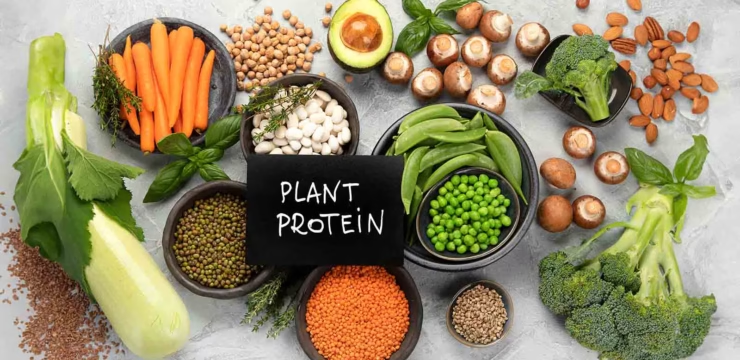In today’s fast-paced world, maintaining a strong immune system is more important than ever. While regular exercise, adequate sleep, and stress management play crucial roles, the food you eat is a foundational pillar of immune health. A nutrient-rich diet can help your body fend off illnesses, recover faster, and stay energized. Here’s a look at the top immune-boosting foods you should incorporate into your meals to keep your immune system in peak condition.
1. Citrus Fruits: Vitamin C Powerhouses
Citrus fruits like oranges, grapefruits, lemons, limes, and tangerines are well-known for their high vitamin C content. Vitamin C is essential for the production of white blood cells, which are key to fighting infections. It also acts as a powerful antioxidant, protecting cells from damage and reducing inflammation. Since the body doesn’t produce or store vitamin C, it’s important to consume it daily through fresh fruits or juices.
2. Red Bell Peppers: More Vitamin C Than Citrus
Surprisingly, red bell peppers contain nearly three times more vitamin C than oranges. They’re also rich in beta-carotene, which the body converts into vitamin A—an essential nutrient for maintaining healthy skin and mucous membranes, the body’s first line of defense against pathogens.
3. Garlic: Nature’s Infection Fighter
Garlic has been used for centuries for its medicinal properties. It contains allicin, a compound that boosts the immune response and helps fight off infections. Regular consumption of garlic can reduce the severity and duration of colds and flu, thanks to its antimicrobial and anti-inflammatory properties.
4. Ginger: Anti-Inflammatory and Antioxidant
Ginger is another powerful food known for its ability to reduce inflammation and oxidative stress. It can help decrease sore throats, reduce nausea, and fight chronic inflammation. Gingerol, the main bioactive compound in ginger, has potent antioxidant effects that support overall immune health.
5. Yogurt: Probiotics for Gut Health
A significant portion of the immune system resides in the gut, making gut health essential for overall immunity. Yogurt, particularly varieties with live and active cultures, is an excellent source of probiotics—beneficial bacteria that support digestive health and enhance the immune response. Look for plain, unsweetened yogurt and add fresh fruit for natural sweetness.
6. Spinach: A Nutrient-Dense Superfood
Spinach is packed with vitamins and minerals that support immune function, including vitamin C, vitamin E, and beta-carotene. It also contains antioxidants and fiber, promoting overall health and aiding in the body’s defense against infections. Light cooking can enhance the absorption of certain nutrients, but it’s best to enjoy spinach both raw and cooked for maximum benefits.
7. Almonds: Vitamin E and Healthy Fats
Vitamin E is a powerful antioxidant that plays a critical role in maintaining a healthy immune system. Almonds are rich in vitamin E, as well as healthy fats that aid in the absorption of fat-soluble vitamins. A small handful of almonds makes for a nutritious snack that supports immune health.
8. Turmeric: Anti-Inflammatory Gold
Turmeric contains curcumin, a compound with strong anti-inflammatory and antioxidant properties. It’s been shown to enhance immune function by modulating the activation of immune cells. Adding turmeric to your diet, whether in curries, teas, or smoothies, can provide a natural boost to your immune system.
9. Green Tea: Antioxidant-Rich Elixir
Green tea is packed with flavonoids, a type of antioxidant that enhances immune function. It also contains epigallocatechin gallate (EGCG), a compound known to improve immune response. Additionally, green tea is a good source of L-theanine, an amino acid that may aid in the production of germ-fighting compounds in T-cells.
10. Sunflower Seeds: Zinc and Selenium
Sunflower seeds are loaded with nutrients like vitamin E, zinc, and selenium, all of which play key roles in immune function. Zinc is crucial for the development and activation of immune cells, while selenium helps reduce inflammation and protect against oxidative stress. Sprinkle sunflower seeds on salads or yogurt for an easy immune boost.
11. Shellfish: A Zinc-Rich Delight
Certain types of shellfish, such as oysters, crab, and mussels, are excellent sources of zinc—a mineral vital for immune cell development and function. While zinc is essential, it’s important to consume it in moderation, as too much can suppress the immune response.
12. Broccoli: A Nutritional Powerhouse
Broccoli is rich in vitamins A, C, and E, as well as fiber and antioxidants, making it one of the most nutritious vegetables you can eat. Its high nutrient content supports immune health and helps the body fight off infections. To retain its nutritional value, cook broccoli as little as possible—steaming is a great option.
13. Papaya: A Tropical Immune Booster
Papaya is another fruit loaded with vitamin C. It also contains digestive enzymes called papain, which have anti-inflammatory effects. Papaya is rich in potassium, magnesium, and folate, all of which contribute to overall health and immune function.
14. Kiwi: Packed with Essential Nutrients
Kiwi is not only rich in vitamin C but also provides vitamin K, potassium, and folate. These nutrients work together to support the immune system and overall health. Including kiwi in your diet can help you meet your daily vitamin C needs and boost immune function.
Final Thoughts
Incorporating a variety of these immune-boosting foods into your diet can help strengthen your body’s defenses against illness and promote overall health. Remember, no single food is a magic bullet for immunity—a balanced diet, regular exercise, adequate sleep, and stress management are all essential components of a healthy lifestyle. By making mindful choices about what you eat, you can support your immune system and enjoy better health year-round.
What immune-boosting food will you add to your next meal?





